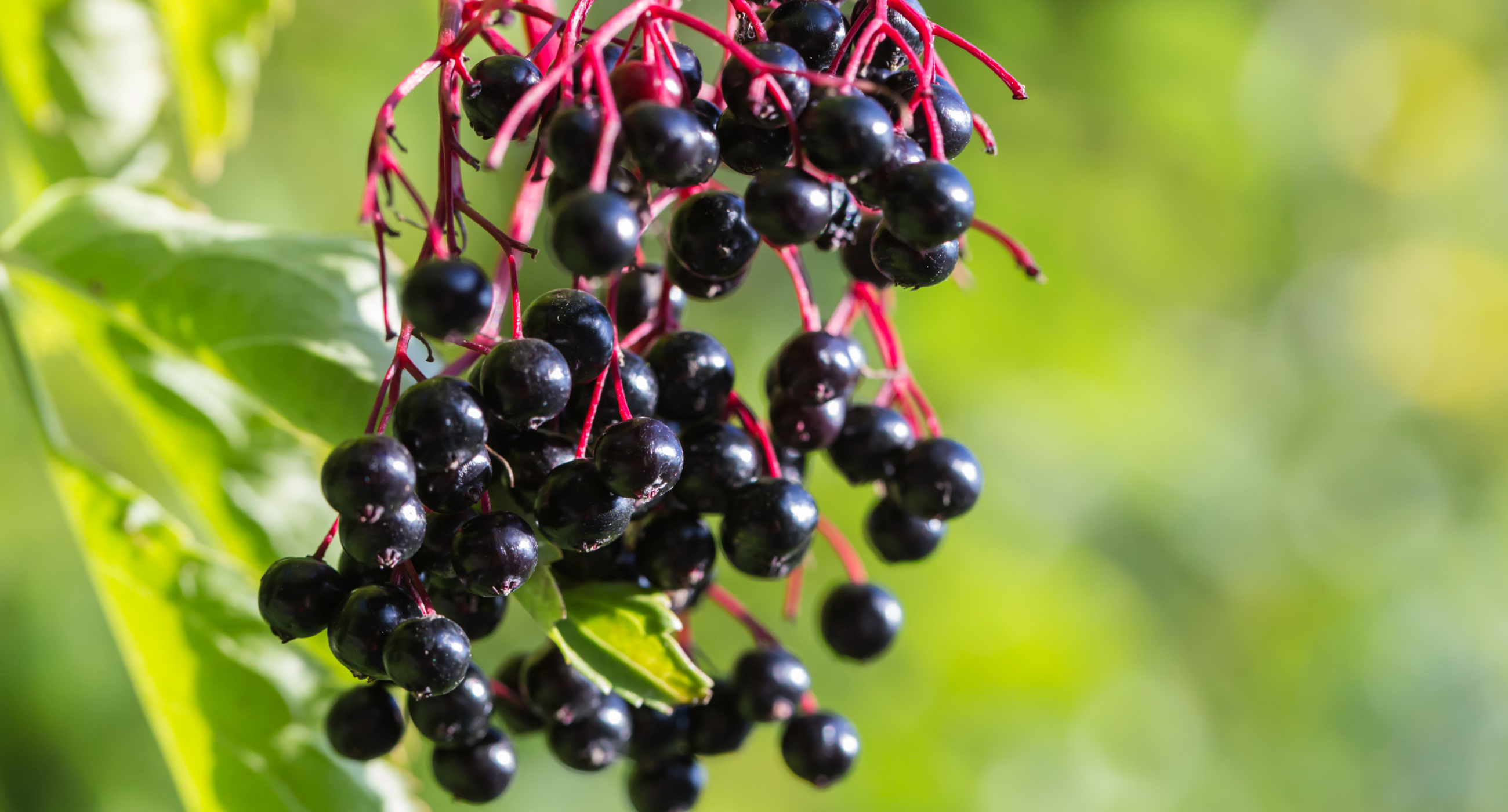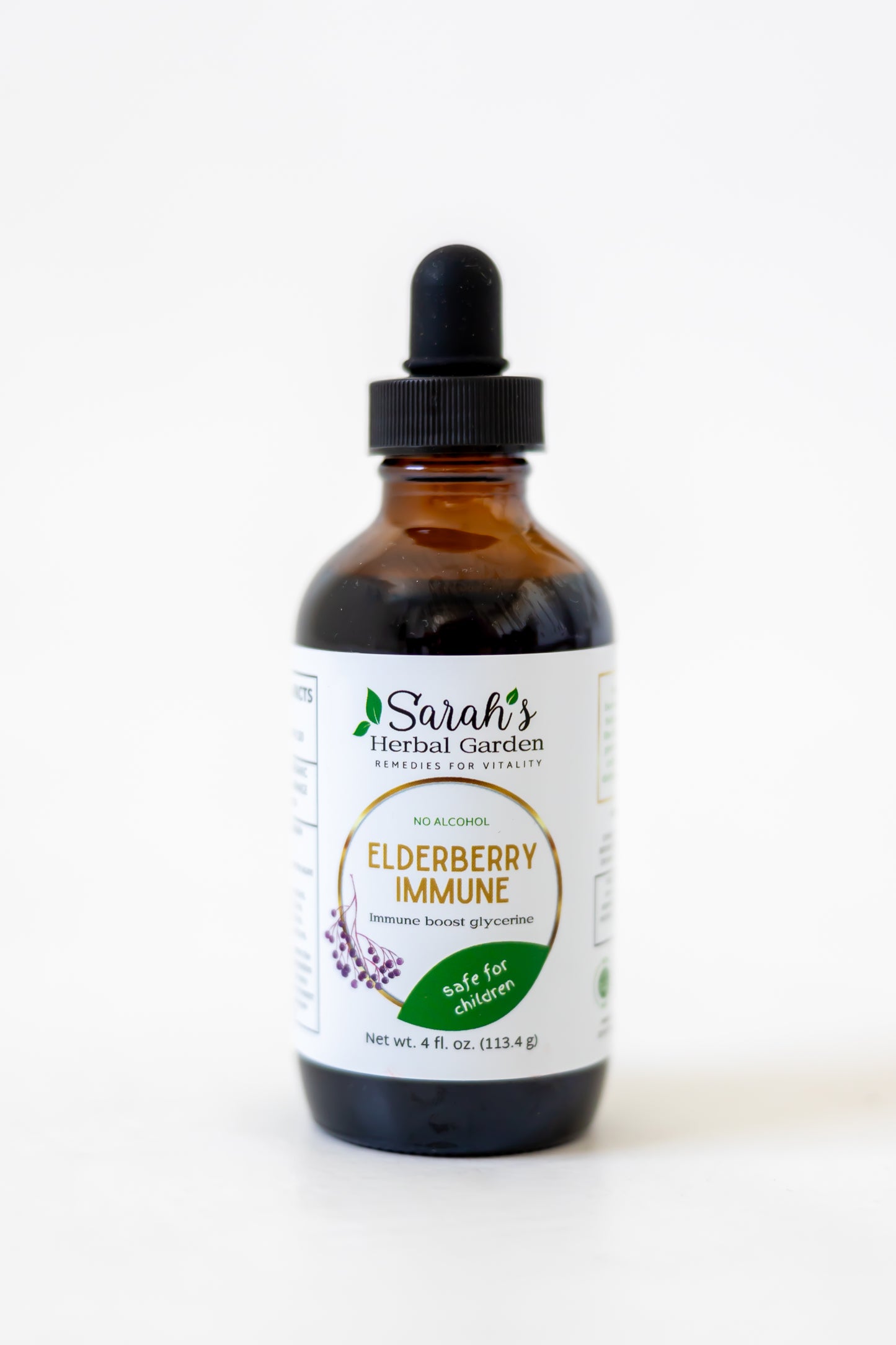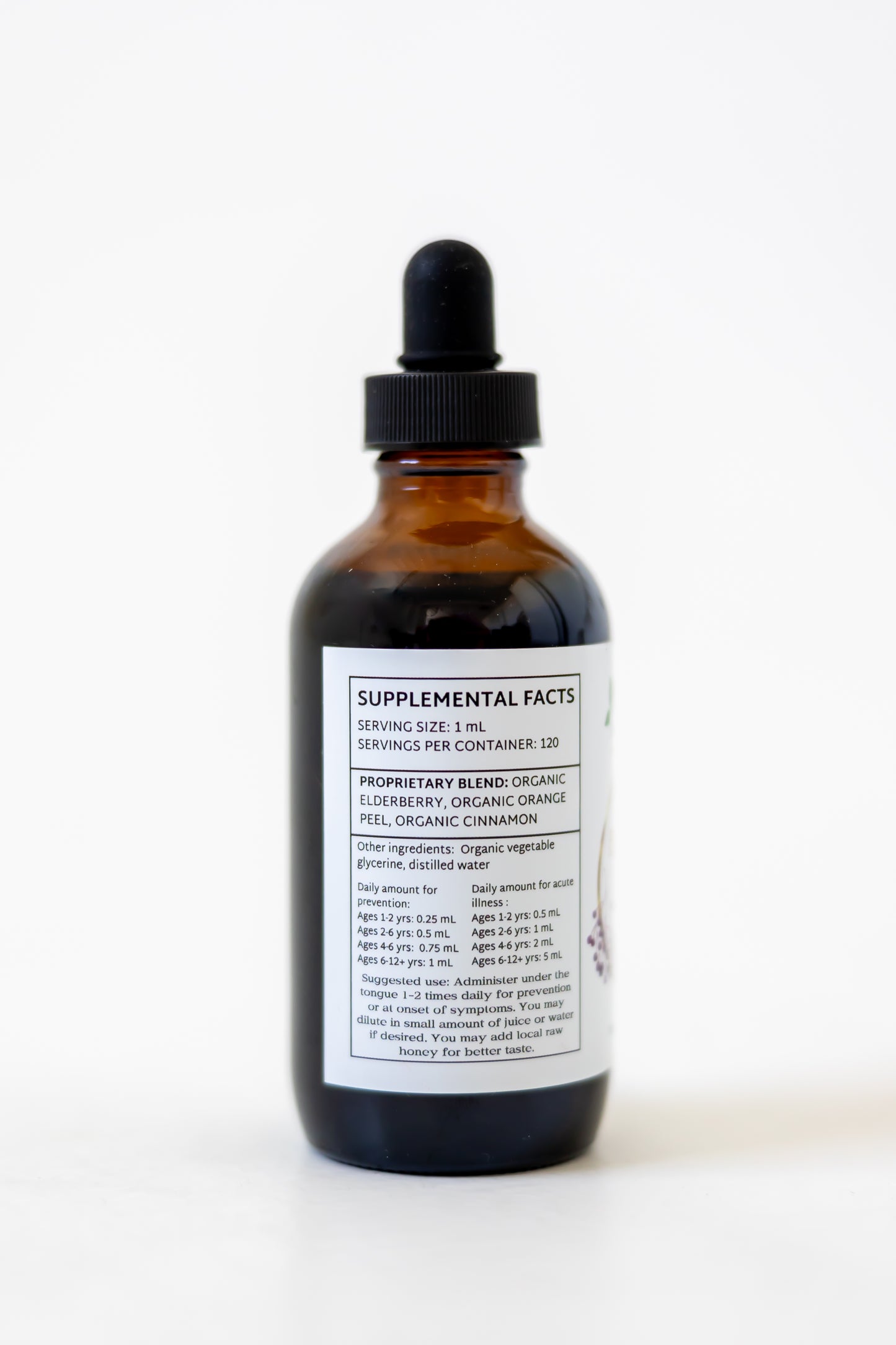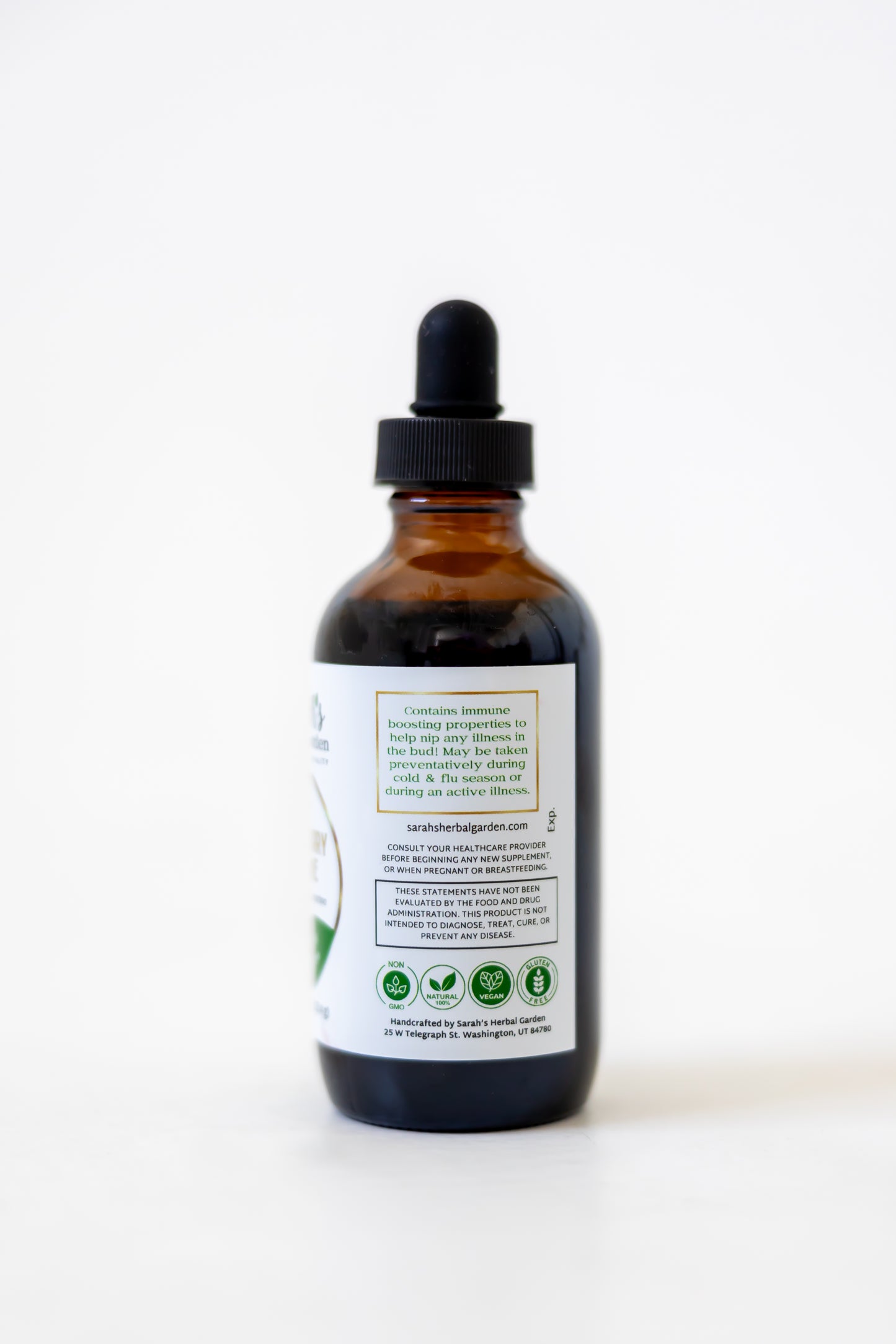
Elderberry
Scientific Name: Sambucus nigra
Herbal Profile: Elderberry
Scientific Name: Sambucus nigra
Family: Adoxaceae
Common Names: Elderberry, European Elder, Black Elder, Sambucus
Description:
Elderberry refers to the dark purple berries produced by the Sambucus nigra tree, which is native to Europe but also found in parts of North America and Asia. The elder tree is a small, deciduous shrub or tree that can grow up to 30 feet tall, with clusters of small white or cream-colored flowers known as elderflowers, which bloom in late spring and early summer. The berries and flowers of the elder plant are used in herbal medicine, particularly for their immune-boosting and antiviral properties.
Traditional Uses:
Elderberry has been used for centuries in traditional medicine across various cultures, particularly for its ability to support the immune system and treat respiratory conditions. Common traditional uses include:
- Immune Support: Elderberry is well-known for its ability to strengthen the immune system. It is often used to prevent and reduce the duration of colds, flu, and other viral infections. Elderberry may boost the production of cytokines, which help regulate immune response.
- Respiratory Health: Elderberry is traditionally used to treat respiratory infections, including colds, flu, bronchitis, and sinusitis. It helps reduce inflammation in the respiratory tract and relieve symptoms such as congestion, sore throat, and cough.
- Antioxidant Effects: Elderberry is rich in antioxidants, including flavonoids and anthocyanins, which help protect cells from oxidative stress and reduce inflammation. This makes it beneficial for overall health and reducing the risk of chronic diseases.
- Anti-Inflammatory Properties: The herb has anti-inflammatory properties, which may help alleviate symptoms of arthritis and other inflammatory conditions.
- Digestive Health: Elderberry has mild laxative properties and has been used to support digestive health by relieving constipation and promoting regular bowel movements.
- Skin Health: Elderberry is sometimes used in topical preparations for skin health due to its antioxidant and anti-inflammatory effects. It may help reduce inflammation and protect the skin from damage caused by free radicals.
Active Compounds:
- Anthocyanins: Powerful antioxidants that help protect cells from oxidative damage, reduce inflammation, and support immune function. They also give elderberries their dark purple color.
- Flavonoids (Quercetin, Kaempferol): Contribute to the herb’s antioxidant and antiviral properties, helping to boost the immune system and protect against infections.
- Vitamin C: An essential nutrient and antioxidant that supports immune function, skin health, and overall vitality.
- Phenolic Acids: Offer antioxidant and anti-inflammatory effects, helping to reduce inflammation and protect against oxidative stress.
- Lectins: Proteins that may help inhibit the replication of certain viruses, contributing to elderberry’s antiviral effects.
Preparation and Dosage:
- Syrup:
- Tea (Infusion):
- Tincture:
- Capsules/Tablets:
- Lozenges:
Safety and Precautions:
- Pregnancy and Breastfeeding: The safety of elderberry during pregnancy and breastfeeding has not been well-established. It is advisable to avoid its use during these times unless recommended by a healthcare provider.
- Children: Elderberry preparations, especially syrups and gummies, are generally considered safe for children when used in appropriate doses. However, raw elderberries or products made from raw berries should not be given to children due to the risk of cyanogenic glycosides, which can be toxic if not properly prepared.
- Gastrointestinal Symptoms: Some individuals may experience mild gastrointestinal symptoms, such as nausea, vomiting, or diarrhea, especially if elderberry is consumed in large quantities or if raw berries, bark, or leaves are ingested. Ensure elderberries are cooked or processed properly to avoid these effects.
- Allergic Reactions: While rare, some individuals may experience allergic reactions to elderberry. Discontinue use if any allergic symptoms, such as skin rash, itching, or respiratory discomfort, occur.
- Autoimmune Diseases: Because elderberry may stimulate the immune system, individuals with autoimmune diseases (such as rheumatoid arthritis, lupus, or multiple sclerosis) should use elderberry cautiously. Consult a healthcare provider before use.
- Medication Interactions: Elderberry may interact with medications that affect the immune system, such as immunosuppressants. Consult with a healthcare provider before use if you are taking medications or have underlying health conditions.
Conclusion:
Elderberry is a versatile herb with a long history of use in traditional medicine for its immune-boosting, antiviral, and antioxidant properties. It is particularly effective for preventing and reducing the duration of colds, flu, and other viral infections, as well as supporting respiratory and digestive health. While generally considered safe for most people, it is important to use elderberry responsibly and consult a healthcare professional, especially if you are pregnant, breastfeeding, have underlying health conditions, or are taking medications. Always ensure elderberry products are properly prepared to avoid toxicity from raw berries, bark, or leaves.
Sarah's Herbal Garden
Elderberry Immune {Immune Boosting Tincture}
Share




